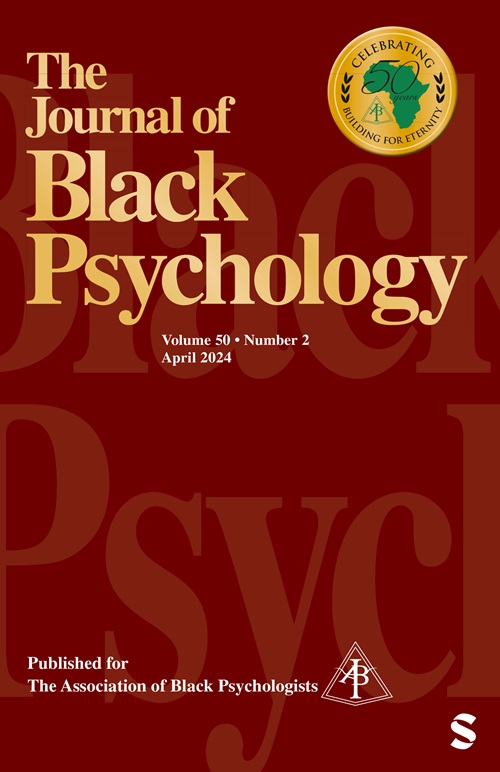African American Activism: The Predictive Role of Race Related Stress, Racial Identity, and Social Justice Beliefs
IF 2.2
3区 心理学
Q2 PSYCHOLOGY, MULTIDISCIPLINARY
引用次数: 5
Abstract
Historically, African American activism has played a pivotal role in advancing social change in the United States. As such, there is an interest in examining possible factors that may engender activism among African Americans. Therefore, the purpose of this study was to extend research by Szymanski and Lewis (2015), which explored potential predictors of activism among African Americans. With a sample of 458 African American undergraduates, race-related stress, racial identity dimensions, and social justice variables were examined. A four-stage, multiple linear hierarchical regression model and two multiple mediation bootstrap analyses were employed. Race-related stress and racial identity attitudes significantly and uniquely predicted involvement in African American activism, complementing existing literature. Beyond that, social justice beliefs predicted African American activism over and above racial identity and race-related stress. More specifically, social justice subjective norms (i.e., social influence) was the most important predictor of activism for African American undergraduates. Implications for social justice development within institutions of higher education are discussed.非裔美国人行动主义:种族相关压力、种族认同和社会正义信念的预测作用
从历史上看,非裔美国人的行动主义在推动美国社会变革方面发挥了关键作用。因此,研究可能在非裔美国人中产生激进主义的可能因素是一种兴趣。因此,本研究的目的是扩展Szymanski和Lewis(2015)的研究,该研究探索了非裔美国人行动主义的潜在预测因素。以458名非裔美国大学生为样本,研究了种族相关压力、种族认同维度和社会公正变量。采用四阶段多元线性层次回归模型和两次多元中介自举分析。与种族相关的压力和种族身份态度显著且独特地预测了非裔美国人激进主义的参与,补充了现有的文献。除此之外,社会正义信念预示着非裔美国人的激进主义超越了种族认同和种族相关压力。更具体地说,社会公正主观规范(即社会影响)是非洲裔美国大学生行动主义最重要的预测因子。讨论了高等教育机构内社会正义发展的影响。
本文章由计算机程序翻译,如有差异,请以英文原文为准。
求助全文
约1分钟内获得全文
求助全文
来源期刊

Journal of Black Psychology
PSYCHOLOGY, MULTIDISCIPLINARY-
CiteScore
8.00
自引率
5.80%
发文量
22
期刊介绍:
The Journal of Black Psychology publishes scholarly contributions within the field of psychology toward the understanding of the experience and behavior of Black populations. This includes reports of empirical research and discussions of the current literature and of original theoretical analyses of data from research studies or programs. Therefore, the Journal publishes work in any of the areas of cognition, personality, social behavior, physiological functioning, child development, education, and clinical application, in addition to empirical research and original theoretical formulations outside traditional boundaries, all integrated by a focus on the domain of Black populations and the objective of scholarly contributions.
 求助内容:
求助内容: 应助结果提醒方式:
应助结果提醒方式:


